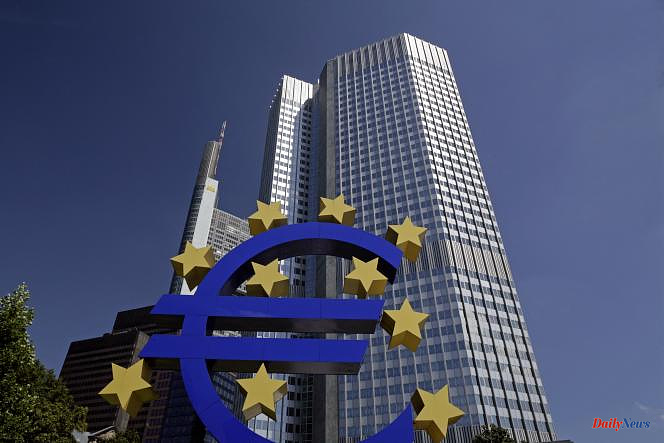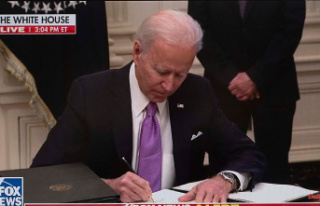For the fifth time in less than a year, the European Central Bank (ECB) raised its three key rates on February 2. A monetary policy decision intended to control inflation, in a context of sharply rising prices.
What is a policy rate?
To maintain price stability in the euro area, made up of twenty countries, the ECB has several levers, including interest rates. The institution determines three "key" rates, so named because they guide the economy.
Why increase rates?
The ECB increases its rates when it finds that inflation is too high: by raising the cost of money, it aims to discourage borrowing, the circulation of money, consumption and therefore, ultimately, to curb the price increase spiral. The statutes of the institution provide that it strives by all means to maintain the inflation rate at 2% per year.
However, due to the recovery following the health crisis, the seizing up of global supply chains and the war in Ukraine, prices have risen sharply in recent months. In the euro zone, the increase amounted to 8.5% year on year in January, according to the statistical body Eurostat. It even reaches 16% for food, housing and up to 25% for energy.
It is therefore "to maintain price stability" that the ECB has raised its rates several times in recent months, as its President, Christine Lagarde, recently recalled. The refinancing rate thus rose from 0% to 3% between July and February, approaching for the first time the levels before the financial crisis of 2007-2008. This contrasts with the accommodating policy conducted over the past decade, when rates remained close to zero for a long time.
And it's probably not over. The Governing Council of the ECB has already warned that it intends to raise interest rates again by 0.5 points on March 16. In its statement, the ECB reaffirmed its desire to "significantly increase interest rates" to ensure a return to the inflation rate of 2% by the third quarter of 2025.
The ECB is not isolated in this rate hike policy. The Fed, the American central bank, also raised its main interest rate in February for the eighth time in a year (4.5 points over this period). The Bank of England is on its ninth increase in a year (3.5 points), which is across the Channel the most severe monetary recovery since the 1980s.
Raising rates is not unanimous
Within the euro zone, some are annoyed by the hikes in key rates. “I am worried to see many experts and certain players in European monetary policy explaining to us that European demand should be broken to better contain inflation. You have to be very careful, ”President Emmanuel Macron was alarmed to Les Echos in October. Indeed, by cutting off the money tap, the ECB runs the risk of stifling growth.
On the side of the States, it is the most indebted who are worried. In Italy, the Minister of Defense, Guido Crosetto, considers that "some decisions have negative effects because they amplify the crisis". Rome is in debt to the tune of 150% of its gross domestic product (GDP) in 2021, and takes a dim view of the ECB's desire to increase the cost of borrowing.
For households, the consequence is the same: high interest rates make borrowing a deterrent. On the real estate market, the Observatoire Crédit Logement/CSA announces that for the thirteenth consecutive time, the average rate of fixed-rate loans in the competitive sector has increased (2.59% in January, against 1.06% in December 2021). The number of loans granted fell by 32% between January 2022 and January 2023, according to the Observatory.
There is also the question of the effectiveness of an increase in rates on controlling inflation, which economics is struggling to assess. “It is impossible to intrinsically isolate a variable and look at its effects,” explains Gabriel Colletis, professor of economics at Toulouse-I-Capitole University.
In addition, further price increases are expected to largely depend on the evolution of the war in Ukraine, which "continues to pose a significant risk to the economy and could increase energy and food costs", according to the ECB.












